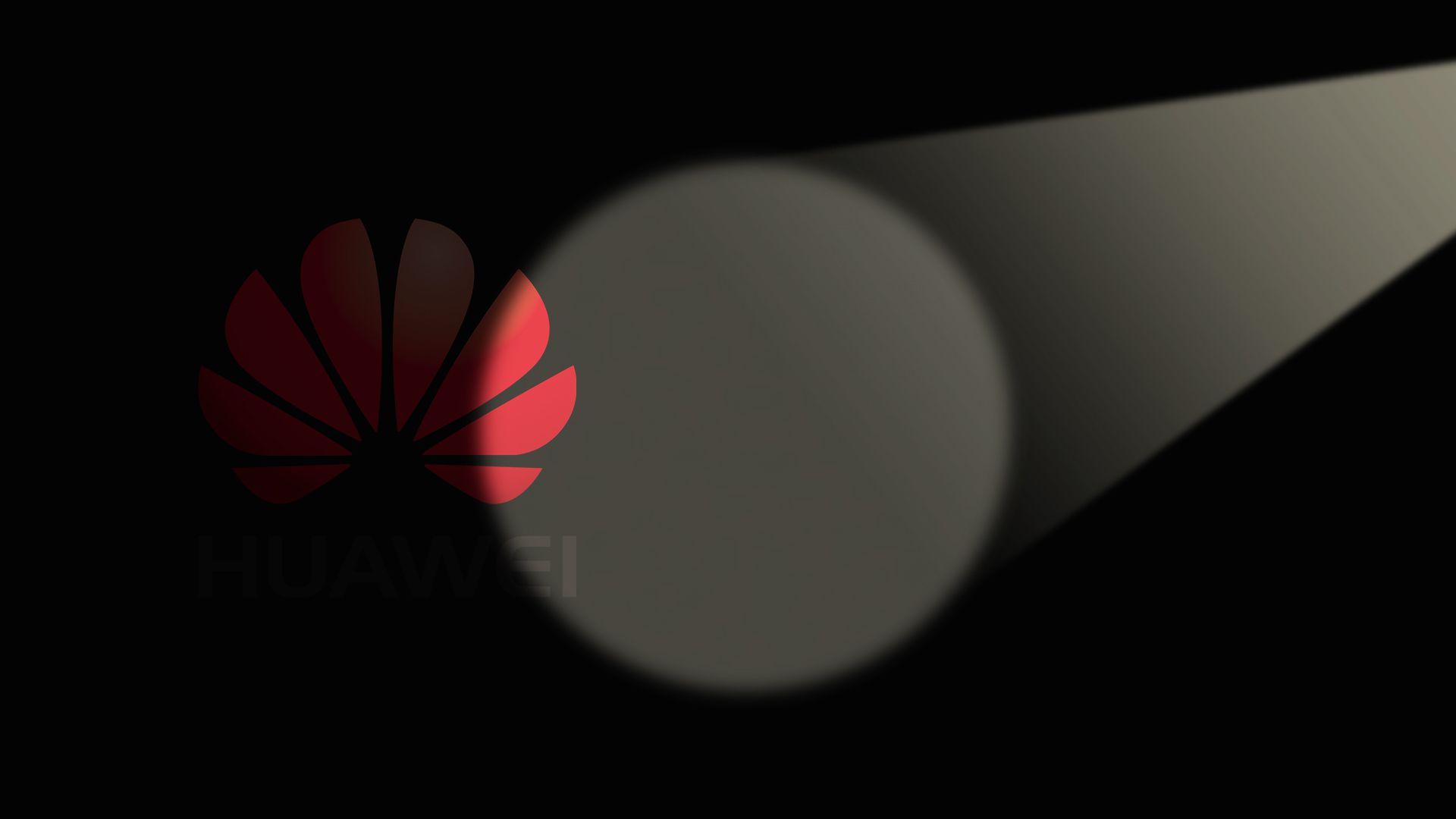Huawei makes its case against U.S. hostilities
Add Axios as your preferred source to
see more of our stories on Google.

Illustration: Aïda Amer/Axios
Two top Huawei U.S. executives are at the RSA Conference in San Francisco this week, hoping the crowd of security experts will be more receptive to its position than have been policymakers in Washington, where the Chinese giant has gotten an increasingly hostile reception.
The big picture: Huawei's business has been under all manner of attack from the U.S. government, from trade sanctions to criminal charges to efforts to persuade allies not to buy their gear.
What they're saying: Huawei argues that it is being unfairly targeted because it is a Chinese company.
- "This country of origin issue is something that needs to be considered," says Huawei's Tim Danks. "It's one factor you should look at — it's not the only [one]."
- The whole global supply chain is an issue, Huawei contends, noting that many of Huawei's non-Chinese competitors get their components and manufacturing from some of the same suppliers as Huawei.
Some of those suppliers are U.S. companies, Huawei notes.
- "While it's impacted Huawei and nobody can say it hasn't impacted us to some degree … it's hurting Americans at this point more than it's hurting Huawei," Danks said.
Yes, but: U.S. officials and many in the security community have argued there are specific concerns with Huawei beyond just that they are a Chinese company. The company faces criminal charges in the U.S. over trade secret theft and violation of U.S. sanctions.
What's next: At this point, China and the U.S. are aggressively trying to decouple what have been very tightly interdependent tech economies. That's causing a lot of pain in the short term for both sides, and setting up a future that increasingly looks to bring more walled-off competition than global trade.
- Europe also remains a wild card in the fight. Although historically closely allied with the U.S. on both trade and political matters, Europe has been largely resistant to U.S. calls to completely shut Huawei out as a supplier of equipment for next-generation 5G cellular networks.
Meanwhile: Danks said that thus far, the impact of the coronavirus on Huawei's business has been limited.
- No plants have been shuttered, though certain groups are having people work from home where possible.
- The company had hoped to increase 5G gear production this year, but at this point things are looking roughly flat, he said. "We don't see any major disruption to our supply chain," Danks said.
Go deeper: The new tech cold war between China and U.S.
